Hangawi Korean Food: Affordable authentic Korean food in town — too good to be true?
I’m a cash-strapped undergrad student with a penchant for Korean cuisine; you can imagine how my heart aches. I’ve patronised one too many Korean eateries that have touted themselves as ‘affordable’, only for the meal to cost me a pretty penny.
That was until I leapt at the opportunity to patronise Hangawi Korean Food after stumbling upon multiple posts about it on my social media feed. Many vouched for its affordability and authenticity. Okay, score!
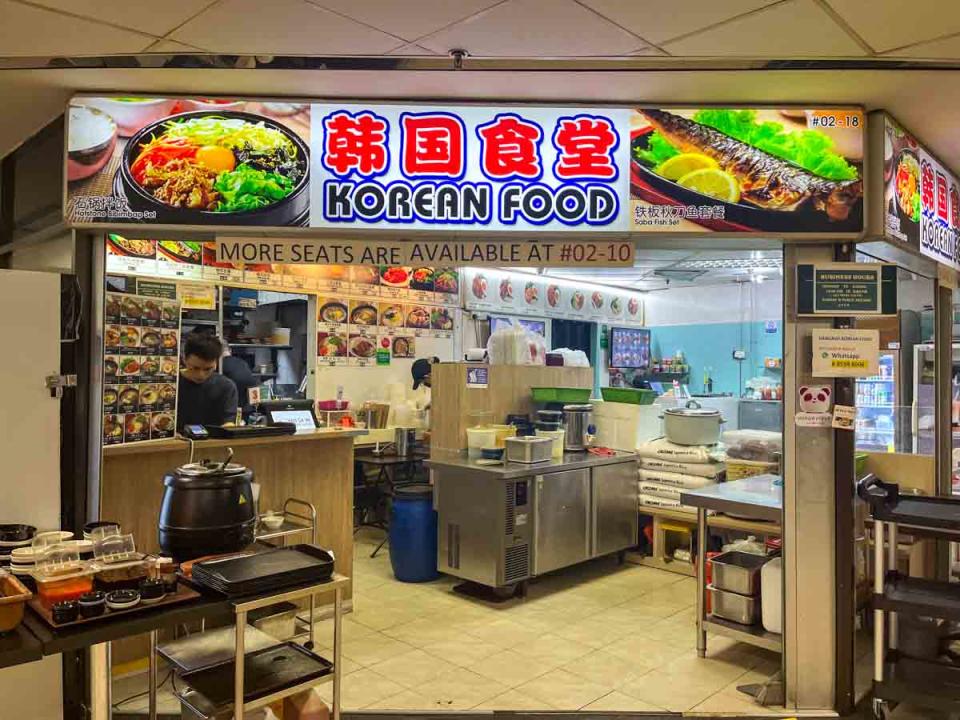
I’m not quite sure if ‘hole-in-wall’ applies to Hangawi Korean Food. While its no-frills interior and minimal furnishings may suggest it, the colourful signboard and prominent location on the second floor of Fortune Centre prime it to be quite a landmark.
Anyways, back to the main point. You see, Hangawi has no social media presence of its own. Whatever I’d seen stemmed solely from the digital grapevine and clearly, it did the job for me. I made my visit on a fine Tuesday afternoon; the eatery sported no sign of the queues it’s said to be characterised by. Phew.
A quick skim through the menu plastered on their walls revealed the buzz to be true — most of their offerings came in at under S$10. The only exception was the Ginseng Chicken (S$11.90). There isn’t anything too over-the-top about their fare either; the menu mostly revolved around hearty Korean classics. I opted for some of the less conventional options, though.
What I tried at Hangawi Korean Food
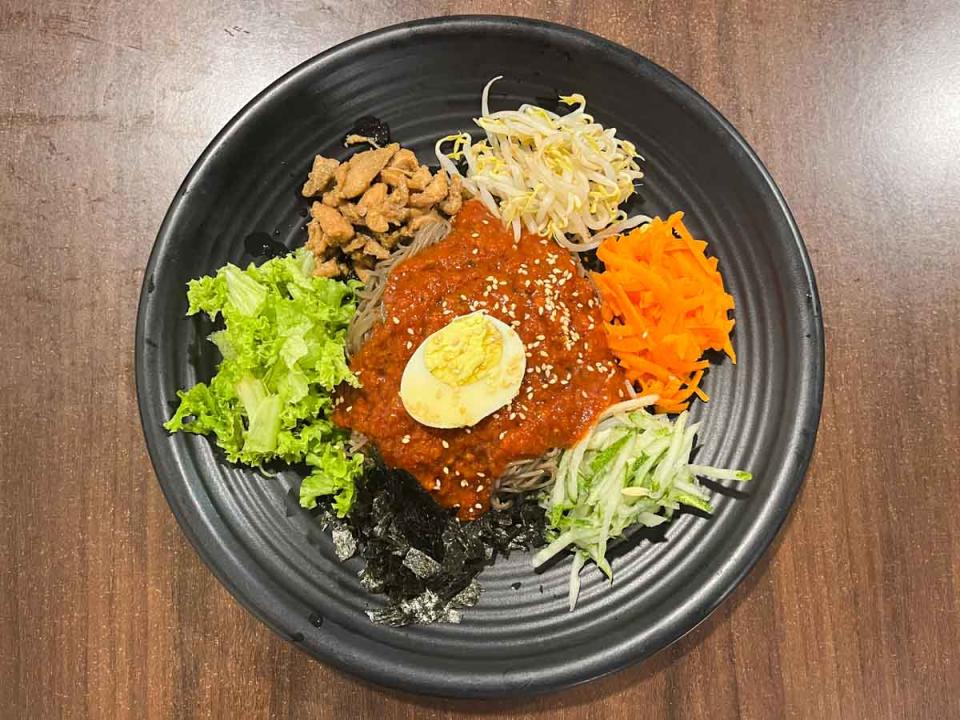
The first dish that piqued my interest was the Bibim Noodles with Chicken (S$7.50), as it isn’t often found in our local Korean eateries. Naturally, I had to start with that.
If you couldn’t already tell from its name, this is the noodle counterpart of the crowd-favourite Bibimbap, which is also available at Hangawi for S$6.90. As an avid lover of the rice dish, I had to resist every urge to fall back on it so that I could try something new.
This visually striking dish featured thin somyeon noodles blanketed by a layer of red gochujang sauce, accompanied by half a hard-boiled egg and a plethora of ingredients arranged meticulously around the plate. It reminded me of a palette, except with vegetables instead of paint; what a sight for sore eyes.
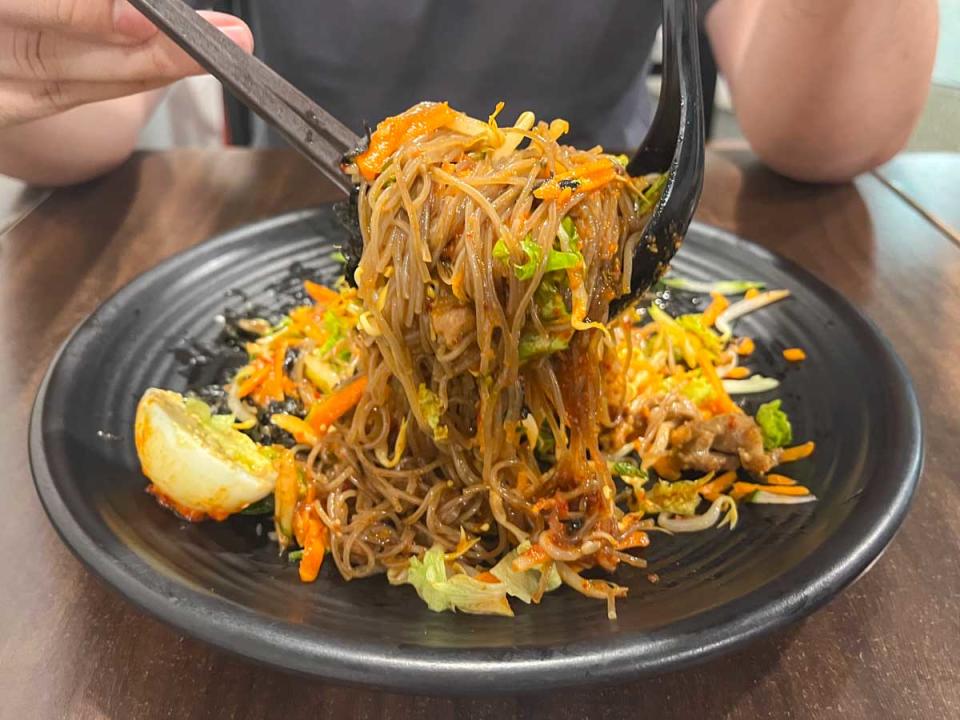
I gave the noodles a good toss, ensuring that each thin strand would glisten in all that saucy gochujang glory, and that each mouthful would consist of a satisfying mix of noodles and vegetables. It was then that I realised that the portion was way smaller than it had appeared. Oh, the optical illusions a large plate can create!
Despite their resemblance to bee hoon, the somyeon noodles actually offered quite a chewy bite. My first few spoonfuls were delightful — the chewy noodles carried a perfect amount of mildly spicy gochujang sauce, complemented by the chicken chunks and refreshing, crunchy cucumber and carrot shreds. It’s worth noting that the dish is served slightly chilled as well, making it perfect for Singapore’s eternal summers.
My main gripe, however, had to do with the Bibim Noodles’ flavour balance. The dish leaned towards a sweet profile, which unfortunately became cloying as I worked my way through it. It could definitely have benefitted from a touch more protein or perhaps a drizzle of nutty sesame oil to lend it some savoury depth.
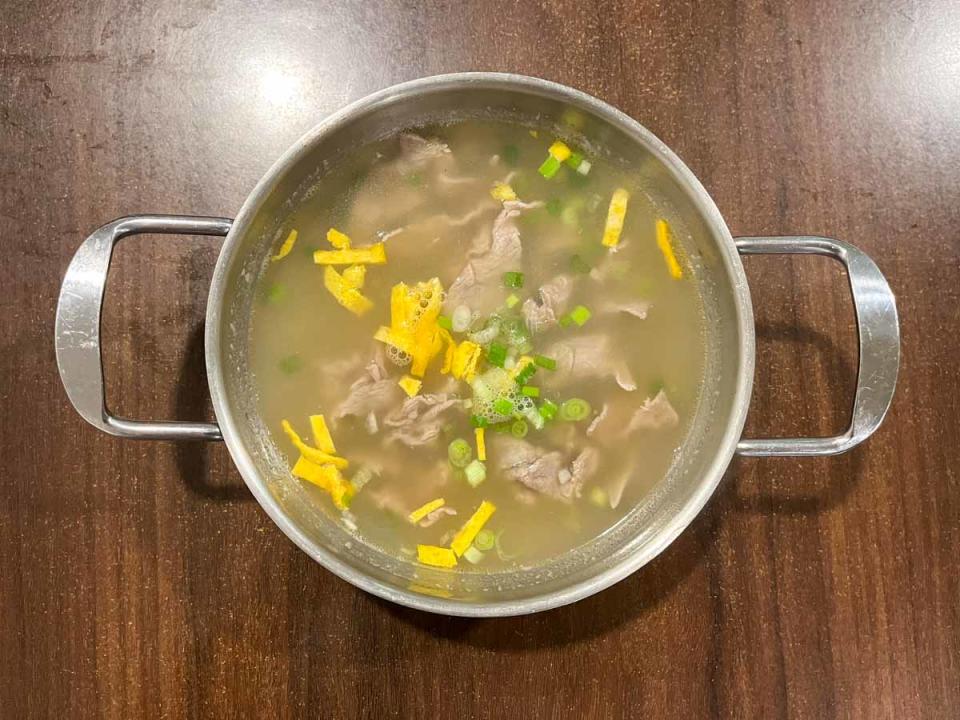
If there’s something you absolutely cannot go wrong with in the realm of Korean cuisine, it’s a comforting stew or soup. I mean… kimchi soup and tofu soup? Classics. However, I went a little against the grain and decided on the Sul Rung Tang Set (S$7.50), otherwise known as seolleongtang or ox bone soup. It’s served with a side of fluffy purple rice.
For the uninitiated, seolleongtang is a traditional Korean soup made by simmering beef bones, brisket and other cuts for hours on end. The product is a rich, milky white broth.
The soup was served in a huge metal pot, with several slices of beef and some tang hoon submerged in it. Hangawi’s rendition was a little clearer in colour than I had anticipated, but who was I to complain? I couldn’t have been more thrilled to be able to try seolleongtang right here, having passed up on several opportunities to sample it on my previous trips to its motherland; wasted, I know.
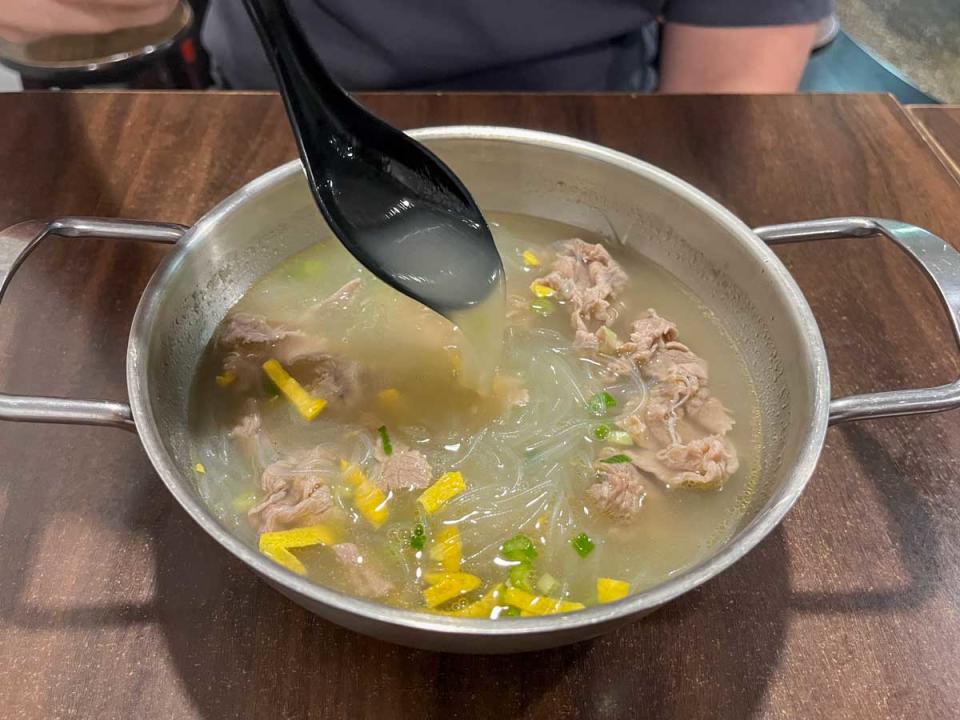
Lacklustre appearance aside, the seolleongtang was thoroughly enjoyable. It was light yet robust, with savoury hints of beef and a subtle sweetness that presumably came from the bones. Moreover, it had somewhat of a velvety smooth consistency that reminded me of the rich, milky collagen broths I’ve had at hot pot joints.
The soup was wholly comforting and utterly satisfying; having a bowl of it with some fluffy rice would be absolutely perfect for days when I feel under the weather. Scratch that, I’d like 10.
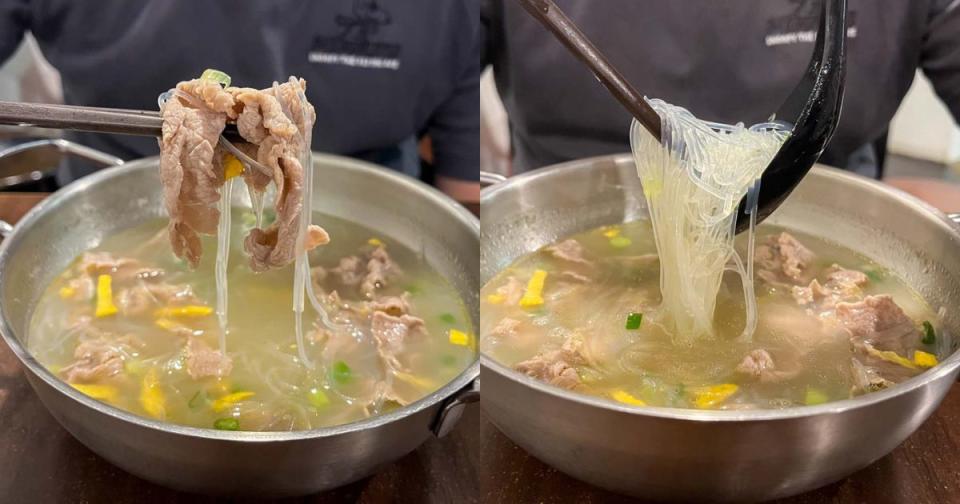
However, while the soup itself was delightful, its constituent ingredients didn’t quite hit the mark. I found the beef slices to be rather tough and lacking in flavour, while the tang hoon had a snappy texture that felt unsuited for the dish. I certainly would’ve preferred a fattier or more tender cut of beef and some chewier glass noodles to complement such a delicate dish.
Nonetheless, I found myself able to overlook these shortcomings as the depth of flavours in the soup triumphed overall.
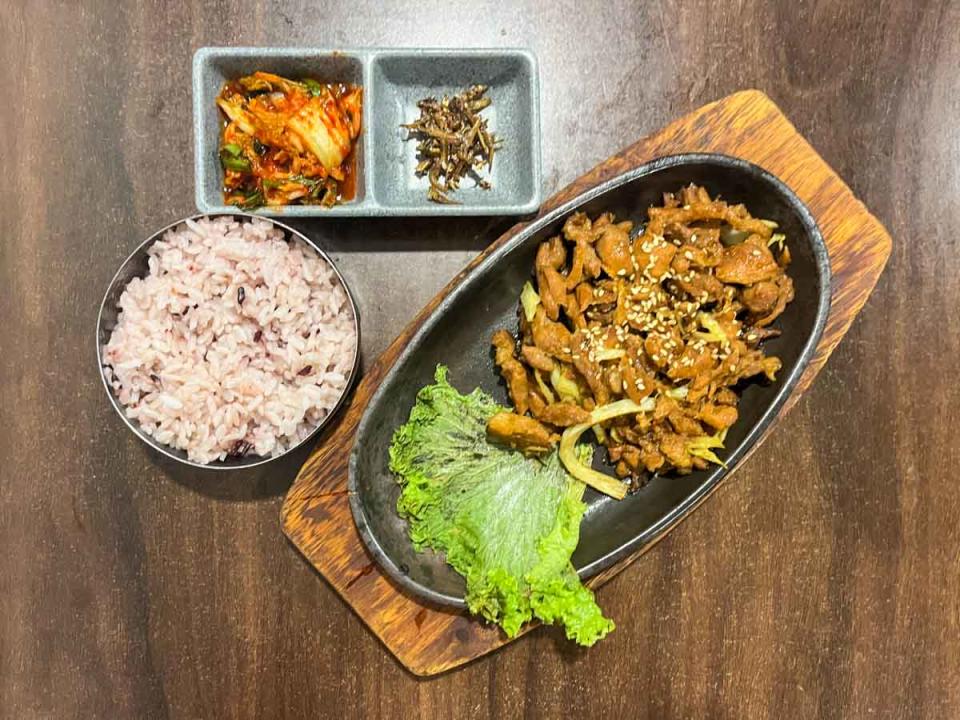
Alright, I caved for a classic. The spice lover in me couldn’t help but order the BBQ Chicken Set (S$7.90), or bulgogi chicken, as I like to refer to it. I could hear the inviting sizzle of the meat on its cast iron hotplate from afar.
Alas, my excitement amounted to nothing. I was puzzled by the stingy portion of chicken, which barely covered half the hotplate. There was hardly any attempt to pass it off otherwise, aside from the lettuce leaf. The chicken pieces themselves appeared rather pale and uninspiring, too, devoid of any sauce and caramelised glaze that I had envisioned.
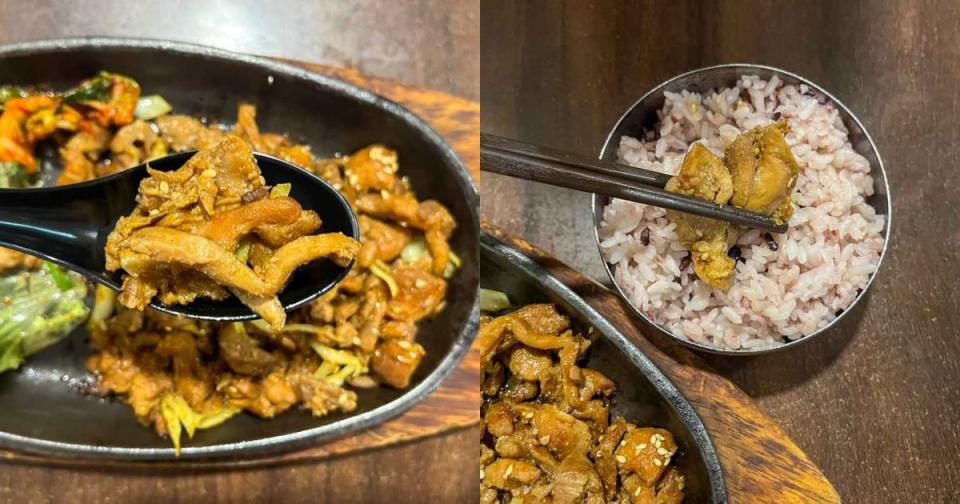
To add to my disappointment, its taste fell far short of what I had desired. The chicken sorely lacked depth and richness as much as it did colour. It was bland and strangely dominated by subtle gingery notes, and not in a way that added flavour. Not even pairing it with rice could coax the flavours out.
I’m sorry, but each bite only had me missing the usual savoury-sweetness of perfectly caramelised bulgogi.
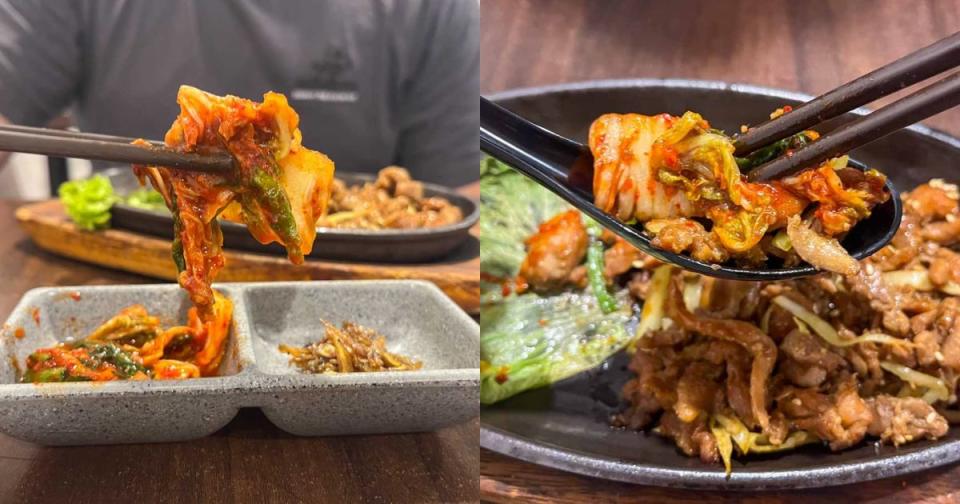
There was, however, one saving grace that slightly improved the BBQ Chicken — their housemade kimchi served on the side of each dish. Having 3 servings of it proved to be extremely useful; each crunchy bite of kimchi offered a much-needed kick, tang and refreshing contrast that cut through the ‘monotony’ of the chicken. Ah, so that’s where the complex and bold flavours of Korean cuisine were.
Final Thoughts
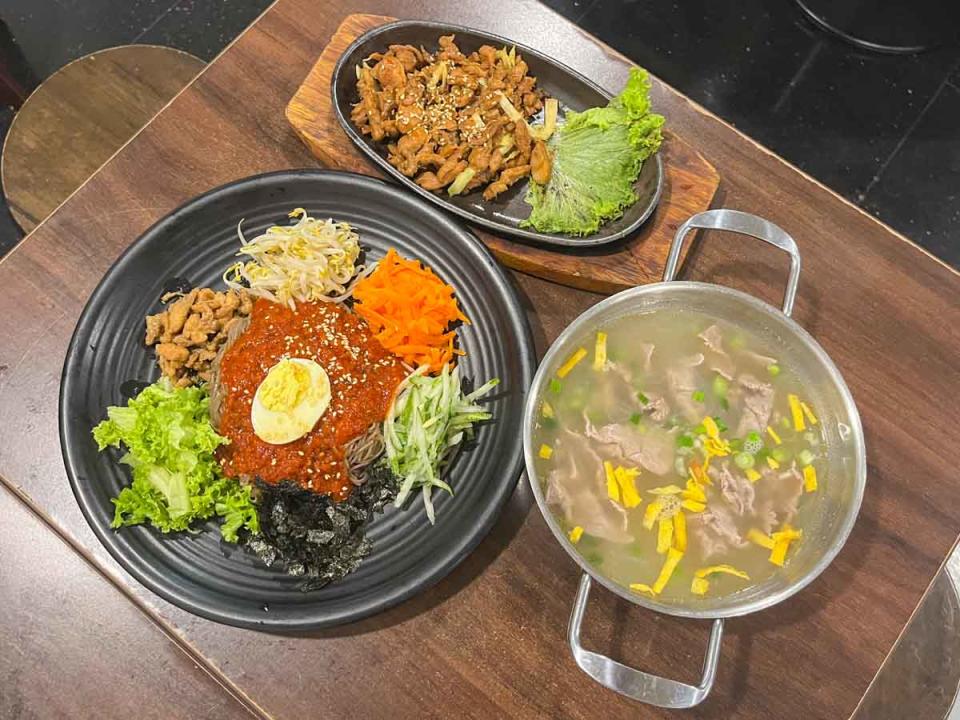
I’d say that my meal at Hangawi Korean Food was a mixed bag of highs and lows.
On one hand, they did live up to online promises of affordable Korean cuisine. On the other hand, most of what I tried was unfortunately underwhelming. At the same time, there were several undeniable stand-out elements such as the kimchi and seolleongtang, the latter of which I definitely see myself returning for.
I need to clarify that I do not condemn the eatery and their fare in any way. I guess what I can conclude is that Hangawi Korean Food was probably not the right place to detract from the classics. With such (genuinely) wallet-friendly fare and a convenient location to boot, I will definitely return to give their staples a shot!
Expected damage: S$6.90 – S$11.90 per pax
Order Delivery: foodpanda Deliveroo
The post Hangawi Korean Food: Affordable authentic Korean food in town — too good to be true? appeared first on SETHLUI.com.


